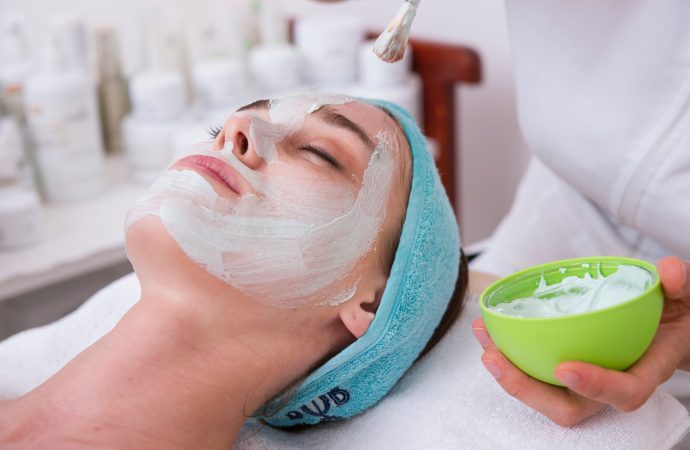Are you tired of looking at your dull and lifeless skin in the mirror every day? Do you wish to achieve a radiant and glowing complexion without spending a fortune on beauty treatments? Look no further, because we have got the perfect solution for you – Regular Exfoliation! Yes, that’s right. This simple yet effective
Are you tired of looking at your dull and lifeless skin in the mirror every day? Do you wish to achieve a radiant and glowing complexion without spending a fortune on beauty treatments? Look no further, because we have got the perfect solution for you – Regular Exfoliation! Yes, that’s right. This simple yet effective skincare routine can work wonders for your skin by sloughing off dead skin cells and revealing fresh, healthy-looking skin underneath. In this blog post, we will discuss why exfoliation is crucial for maintaining smooth and clear skin, how it works, and some tips on how to incorporate it into your weekly skincare regimen. So get ready to say goodbye to dullness and hello to healthy radiance with regular exfoliation!
What is Exfoliation?
When it comes to keeping your skin looking its best, regular exfoliation is key. Exfoliation helps to slough off dead skin cells, revealing the brighter, clearer skin underneath. Not only does this give your complexion a much-needed boost, but it also helps to prevent clogged pores and breakouts.
There are two main types of exfoliation: physical and chemical. Physical exfoliation uses abrasive materials like beads or a brush to literally scrub away dead skin cells. Chemical exfoliation, on the other hand, uses acids or enzymes to dissolve the bonds between dead skin cells.
Both physical and chemical exfoliation have their own benefits, so it’s really up to you to decide which one you prefer. If you have sensitive skin, however, it’s best to stick with chemical exfoliants as they tend to be gentler on the skin.
No matter which type of exfoliant you choose, make sure to use it regularly for best results!
Benefits of Exfoliation
When it comes to keeping your skin looking its best, regular exfoliation should be a key part of your skincare routine. Exfoliation helps to remove dead skin cells from the surface of your skin, revealing the fresh, glowing skin underneath. Not only does this give your complexion a much-needed boost, but it can also help to prevent breakouts and keep your pores clear.
In addition to giving you a brighter complexion, regular exfoliation can also help to reduce the appearance of fine lines and wrinkles. By removing dead skin cells, exfoliation allows new cell growth, which can help to plump up the skin and smooth out any imperfections.
So why not give exfoliation a try? You’ll be sure to notice a difference in the way your skin looks and feels!
How to Exfoliate
When it comes to keeping your skin looking its best, regular exfoliation is key. Exfoliation helps to remove dead skin cells that can build up on the surface of your skin, leaving it looking dull and lifeless. By exfoliating on a regular basis, you can help to keep your skin looking radiant and healthy.
There are a number of ways that you can exfoliate your skin. You can use a physical exfoliator such as a scrub or brush, or you can use an chemical exfoliator. Physical exfoliators work by physically removing dead skin cells from the surface of your skin. Chemical exfoliators work by dissolving the bonds that hold dead skin cells together, allowing them to be sloughed away.
Whichever method you choose, be sure to use gentle pressure and avoid scrubbing too hard, as this can irritate the skin. Exfoliate once or twice a week for best results.
Different Types of Exfoliators
There are many different types of exfoliators on the market today. But which one is right for you? Here’s a quick guide to the different types of exfoliators and their benefits:
Physical Exfoliators: Physical exfoliators contain small beads or other abrasive particles that work to slough away dead skin cells. This type of exfoliator can be gentle enough for daily use and is ideal for those with dry or sensitive skin. Just be sure to avoid scrubbing too hard, as this can irritate the skin.
Chemical Exfoliators: Chemical exfoliators use AHAs (alpha hydroxy acids) or BHAs (beta hydroxy acids) to dissolve the bonds between dead skin cells, revealing brighter, smoother skin. These exfoliants are ideal for those with oily or acne-prone skin, but can be drying if used too often. Start with once or twice a week and increase as tolerated.
Enzyme Exfoliators: Enzyme exfoliators rely on enzymes derived from fruits to break down dead skin cells. They’re gentle enough for all skin types and are often used in conjunction with other products, such as physical or chemical exfoliants.
Choosing the Right Exfoliator for Your Skin Type
If you’re like most people, you probably think of exfoliation as a way to get rid of dead skin cells. And while that’s true, exfoliation does much more than that. It also helps to unclog pores, even out skin tone, and give your skin a healthy glow. But with so many different exfoliators on the market, how do you know which one is right for you?
Here’s a quick guide to choosing the right exfoliator for your skin type:
If you have dry skin, look for an exfoliator that contains hydrating ingredients like glycerin or hyaluronic acid. Avoid harsh scrubs, which can strip your skin of its natural oils and make it even drier.
If you have oily skin, look for an exfoliator with alpha or beta hydroxy acids (AHAs or BHAs). These ingredients help to dissolve the oil that can clog pores and cause breakouts.
If you have sensitive skin, look for an exfoliator with gentle ingredients like jojoba beads or polenta. Avoid scrubs with harsh chemicals or fragrances, which can irritate your skin.
If you have normal skin, you can pretty much use any type of exfoliator. But we recommend looking for one with natural ingredients like sugar or coffee grounds.
How Often Should You Exfoliate?
The frequency with which you should exfoliate your skin depends on a few factors, including your skin type, the time of year, and the product you’re using. That said, most dermatologists recommend exfoliating two to three times per week.
If you have sensitive skin, you may want to start by exfoliating just once a week and gradually increase the frequency as your skin becomes more accustomed to the treatment. Likewise, if you’re using a particularly harsh product, you may want to back off on the exfoliation for a bit.
In general, though, regular exfoliation is key to keeping your skin looking its best. So find a schedule that works for you and stick to it!
Conclusion
Exfoliating is an essential part of any skin-care routine and can make a huge difference in the texture and appearance of your skin. With regular exfoliation, you can say goodbye to dull, dry skin and reveal a bright, youthful complexion. Not only will this help improve the overall look of your skin but it will also help keep it healthy by removing dead cells that can clog pores and cause breakouts. So if you want glowing and radiant looking skin, adding regular exfoliation into your routine should be top priority!





















Leave a Comment
Your email address will not be published. Required fields are marked with *